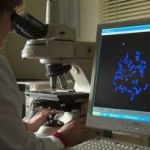Request early diagnosis
Lifestyle habits have a huge impact on the development of cancer to the extent that there is even scientific evidence which suggests that if the entire population would adopt a healthy lifestyle then one out of three tumors could be avoided.
The development of cancer depends on a number of risk factors which include:
- Environmental
- Lifestyle
- Related to biological factors.
- Related to a hereditary component.
Within the work of prevention and early diagnosis of cancer, at iTAcC we subscribe the European Code Against Cancer.
Certain cancers may be avoided –and health in general can be improved – by adopting healthier lifestyle:
- Do not smoke. Do not use any form of tobacco.
- Make your home smoke free. Support smoke-free policies in your workplace.
- Take action to be a healthy body weight.
- Be physically active in everyday life. Limit the time you spend sitting.
- Have a healthy diet:
- Eat plenty of whole grains, pulses, vegetables and fruits.
- Limit high-calorie foods (foods high in sugar or fat) and avoid sugary drinks.
- Avoid processed meat; limit red meat and foods high in salt.
- icon-diet
- If you drink alcohol of any type, limit your intake. Not drinking alcohol is better for cancer prevention.
- Avoid too much sun, especially for children. Use sun protection. Do not use sunbeds.
- In the workplace, protect yourself against cancer-causing substances by following health and safety instructions.
- Find out if you are exposed to radiation from naturally high radon levels in your home. Take action to reduce high radon levels.Cancers may be cured, or the prospects of cure greatly increased, if they are detected early:
- For women:
- Breastfeeding reduces the mother’s cancer risk. If you can, breastfeed your baby.
- Hormone replacement therapy (HRT) increases the risk of certain cancers. Limit use of HRT.
- Ensure your children take part in vaccination programmes for:
- Hepatitis B (for newborns)
- Human papillomavirus (HPV) (for girls)
- Take part in organised cancer screening programmes for:
- Bowel cancer (men and women)
- Breast cancer (women)
- Cervical cancer (women).

Genetic testing and counseling
Around 10% of tumors have an inherited genetic component. Carriers of this component are more likely to develop a certain type of tumor during his or her lifetime, although other factors exist which can determine the appearance of a tumor.
The Genetic Counselling Unit of iTAcC can provide information about the influence of genetics in cancer, advising on whether to conduct a genetic study in order to assess the risk in your family.


